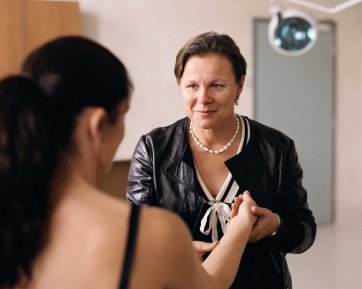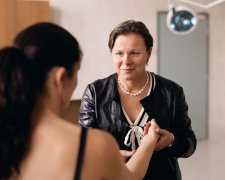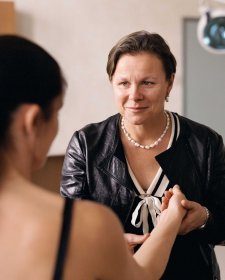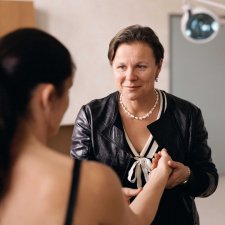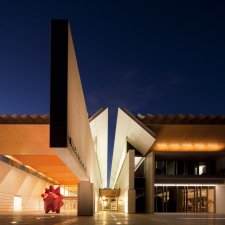I was brought up in Yorkshire, West Yorkshire, in the mining area. In that environment, I was taught to work hard, you know, and really just look for the opportunities. My parents were very, very focused on school. Education gives the opportunity to get up in the morning and enjoy what you do, and that sort of underpinned everything.
I went to med school in 1975 and really at first, in the first sort of few days, and I think it might have even been the first day, we were introduced to the anatomy class, where people have very generously given their bodies to science, so that myself and all my peers would be able to learn the art and the science of the anatomy of the human body. And I was, I was sold, done, done, that is it. If a surgeon puts this back together, this is exquisite, that's what I will be. And I'm thinking, "I must be either really boring "or very fortunate that I'm very focused," whichever lens you put on that, because I've stayed the same since 1975 and it's been the focus ever since then.
But then I've been very, very privileged to work in an environment, where both from a clinical team and a research team, I work with people that are extraordinary and focused, and you know, and just great to be around and solve problems with. But that whole package is focused on them, the group of people that we treat. And then you think of the system, the circumstances, and there are times in my life where the circumstances have been in that perfect storm kind of space and where I think, "Wow, did that really just happen?" And being Australian of the Year was one of those, "Like, wow, did that really just happen?"
Yeah, so there's circumstances as well, so there's the people and then the circumstance. And we've just had the 20 year anniversary of Bali and that's harder to talk about as each year goes by. I think any problem that I... and I learned a lot, as you can imagine, you learn a lot about yourself in these extreme circumstances, and if you've planned and you're trained, then that is your privilege to use the training 'cause I say to the youngsters, "You may think you did all the hard work "but it's actually you're training "and the system that has been facilitated for decades, "hundreds of years, "and it's been facilitated by, you know, your family." And you know, so you, there's a level of obligation and responsibility to give back here. You know, this privileged education is is useless, unless you use it. So, it was a privilege to be able to enact a plan that was based on a lot of thought and practise, and, you know, working how to do better, and then standing back and thinking, "Well, okay, if we were to do this, "how would we refine it again?" You know? So, all that constant learning, constantly all the time.
I think my fundamental belief of going to the table, learning from today to make tomorrow better, puts you at the edge of knowledge. I think one of the most important things in what we do is recognising the need to do better. I learned very early, when I was at medical school, that there's a lot of people that will make comment without engagement in problem solving. There are people who told me that because I was a woman, from a Yorkshire mining village, I could not be a surgeon. Well, and I thought, "Well, what do I do here? "You know, where do I go?" Clearly there was absolutely no point in engaging with the conversation with this person, because they're then not my tribe, because they have no capacity for original thought. And so I'd walk on by. And so, I think as I went forward I've had to... I've coped with the criticism here and there, and by just walking on by, look, you know, fine. And I will engage in problem solving, I will engage in criticism with problem solving. We will work out the evidence and work together, and that's absolutely life's blood. But I will not engage in people that have such a narrow scoped view, that all they can say is, "No." If we all said, "Yes," and then, "Let's work out how to make this happen." Or, "Yes, let's interrogate that, "work out that it's a rubbish idea and fine." But if we say, "No," what we do to that young person often, is we leave them floundering, with an idea, like flapping like a fish on the jetty, you know? Whereas if we said, "Yeah, I don't know about that. "But I think someone over here may know about it," or, "Yeah, let's have a think about that. "Let's have a coffee over that." Or somebody, "Hey, have you heard this idea? "Can you... can you just take that on?" If we said, "Yes," as a whole society, rather than a default, "No," we would generate energy, we would generate solutions, and we'd generate goodwill and collaboration. And so I think, let's see, let's take the "no" off the table all together and let's actually just say, "Yes," and then there's the "but." "How are we gonna make this work? "How are we gonna explore the boundaries, together?"
